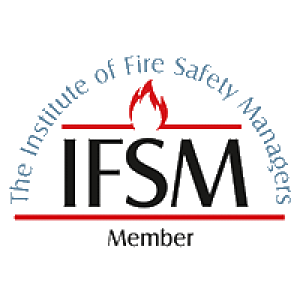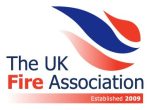When the owner of Brandon House Hotel in Suffolk, cut corners on fire safety during a refurbishment project, he likely thought he was saving time and money.
Instead, his decision to ignore professional advice and allow guests to stay in a building with serious safety failings has cost him far more than compliance ever would have.
Rose recently pleaded guilty to five fire safety offences at Ipswich Magistrates’ Court, charges brought by Suffolk Fire and Rescue Service following a damning inspection in April 2024.
The case serves as a stark reminder of why fire safety regulations exist – and the severe consequences that await those who disregard them.
A Dangerous Gamble with Guest Safety
The three-star, 16-bedroom hotel near Little Ouse was undergoing refurbishment when fire safety officers made their inspection visit.
What they discovered was alarming: despite the fire risk assessment clearly stating that guests should not stay overnight until renovation work was completed, the hotel was actively accommodating paying customers.
The litany of safety breaches uncovered during the inspection reads like a fire safety nightmare:
- A faulty fire alarm system that could fail to alert guests in an emergency
- An obstructed fire exit, potentially trapping guests during evacuation
- Compromised fire-resistant construction affecting protected escape routes
- Inadequate fire safety signage that could confuse guests in low-visibility conditions
- An insufficient fire evacuation plan
Jon Lacey, Suffolk Fire and Rescue Service’s chief fire officer, didn’t mince words about the severity of the situation: “By ignoring professional advice and allowing guests to stay in a building with such serious safety failings, Mr Rose put their safety at significant risk.”
The True Cost of Non-Compliance
While Rose awaits sentencing at Norwich Magistrates Court on November 7th, the damage to his business has already been done. Brandon House Hotel is currently closed – a direct result of his failure to prioritise fire safety compliance.
This closure represents the harsh financial reality of fire safety neglect. Beyond potential fines and legal costs, Rose faces:
Complete loss of business income: With the hotel shuttered, revenue has dropped to zero while fixed costs continue to mount. The financial impact of closure often far exceeds the cost of proper fire safety measures.
Irreparable reputation damage: News of serious fire safety breaches spreads quickly in the hospitality industry. Trust, once lost, is incredibly difficult to rebuild. Potential guests now associate the Brandon House Hotel name with safety failures rather than comfortable accommodation.
Insurance complications: Fire safety breaches can void insurance policies or dramatically increase premiums, adding long-term financial consequences to the immediate closure costs.
Market position loss: Competitors gain market share while the hotel remains closed, potentially creating lasting disadvantages even after reopening.
The Legal Framework: Understanding Your Fire Safety Obligations
This case underscores the critical importance of comprehensive fire risk assessments – legally required evaluations that could have prevented this costly disaster.
The regulatory landscape governing fire safety is comprehensive and unforgiving to those who ignore it.
The Regulatory Reform (Fire Safety) Order 2005 serves as the cornerstone of fire safety legislation in England and Wales.
This Order places the legal responsibility for fire safety squarely on the “responsible person” – typically the employer, building owner, or person in control of premises.
Under Article 9 of the Order, fire risk assessments are mandatory for virtually all non-domestic premises, including:
- Hotels, guest houses, and bed & breakfasts
- Offices and retail premises
- Schools and healthcare facilities
- Entertainment venues and restaurants
- Industrial and warehouse facilities
When assessments are required:
- Before opening a new business
- When taking over existing premises
- During significant renovations or refurbishments (as in the Brandon House case)
- When changing the use of a building
- Following any fire incident
- At regular intervals (typically annually, as stipulated under Article 9)
Additional regulatory frameworks that hotel operators must navigate include:
The Housing Act 2004 – For hotels providing accommodation, this Act introduces the Housing Health and Safety Rating System (HHSRS), which specifically addresses fire safety hazards in residential accommodations.
The Construction (Design and Management) Regulations 2015 – These became relevant during Brandon House Hotel’s refurbishment, requiring proper planning and risk management during construction work, including fire safety considerations.
Building Regulations Approved Document B – Sets out the technical fire safety standards for building design and construction, particularly relevant during renovation projects where structural fire protection may be compromised.
The Health and Safety at Work Act 1974 – Provides the overarching framework requiring employers to ensure the safety of employees and visitors, with specific fire safety duties that complement the Fire Safety Order.
The Assessment Advantage: Prevention Over Punishment
A proper fire risk assessment serves as both shield and roadmap for business owners.
These comprehensive evaluations, required under Article 11 of the Fire Safety Order, identify potential fire hazards and provide clear, actionable plans to address them before they become dangerous – or expensive.
The Fire Safety Order mandates that assessments must be:
- Suitable and sufficient for the premises
- Reviewed regularly (particularly after significant changes)
- Recorded in writing if five or more people are employed
- Available for inspection by enforcing authorities
The assessment process examines:
- Fire detection and warning systems (Article 13 requirements)
- Emergency escape routes and exits (Article 14 compliance)
- Fire-fighting equipment and maintenance (Article 17 standards)
- Staff training and emergency procedures (Article 21 obligations)
- High-risk areas and ignition sources
Enforcement powers under the Fire Safety Order are extensive. Fire and rescue authorities can:
- Issue enforcement notices (as happened with Brandon House Hotel)
- Impose prohibition notices stopping the use of premises
- Prosecute responsible persons for breaches
- Impose unlimited fines for serious offences
Most importantly, assessments provide prioritised action plans that allow businesses to address the most critical issues first, spreading compliance costs over manageable timeframes while maintaining safety standards.
Learning from Brandon House Hotel
Councillor Steve Wiles, Suffolk County Council’s Cabinet Member for Public Health and Public Protection, praised the fire service’s “swift and decisive action,” noting that the case “underlines why fire safety regulations must be taken seriously and enforced with vigour when ignored.”
The message is clear: fire safety compliance isn’t just about avoiding penalties – it’s about protecting lives, preserving businesses, and maintaining the trust that keeps customers coming back.
As the owner faces sentencing and contemplates the closure of his hotel, other business owners would do well to remember that fire safety regulations exist for good reason.
The Regulatory Reform (Fire Safety) Order 2005 and its supporting legislation create a comprehensive framework designed to prevent tragedies – but they require active compliance, not passive acknowledgment.
The cost of compliance pales in comparison to the devastating price of neglect.
Professional fire risk assessments typically cost hundreds of pounds, while the remedial works they identify can often be implemented gradually.
Compare this to the total business closure, legal costs, and reputational damage now facing Brandon House Hotel.
In the hospitality industry, where guest safety is paramount, there are no acceptable shortcuts when it comes to fire protection.
The regulatory framework is clear, the enforcement powers are real, and the consequences of non-compliance are severe.
The choice is simple: invest in proper fire safety measures now, or risk losing everything later.









